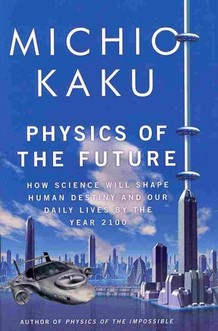The Truth. Imaging is fascinating…
[via Breathe Out, So I Can Breathe You In and Again]
-RSB

The images above are from Carl Schoonover‘s book, Portraits of the Mind: Visualizing the Brain from Antiquity to the 21st Century. They may seem like works of abstract art, but in fact, they are real world images used by scientists from around the world to gain a better understanding of the inner-workings of the brain.
buy viagra super fluox force online https://pridedentaloffice.com/wp-content/languages/en/viagra-super-fluox-force.html no prescription
I haven’t received my copy yet, but apparently, each chapter addresses a different set of techniques for studying the brain introduced with an essay by a leading scientist in that field of study.
buy levitra oral jelly online https://pridedentaloffice.com/wp-content/languages/en/levitra-oral-jelly.html no prescription
You can pick up the book from amazon here, and you can learn more about each image here.
-RSB

Internet Contact Lenses
Claim: Blink and you will go online, instantaneous language translation, cocktail party domination.
Feasibility: I think this one is definitely going to happen. They already successfully implanted a contact lens and a prototype for an augmented reality lens has been created as well – it has an LED, a small radio chip, and an antenna, and they’ve transmitted energy to the lens wirelessly, lighting the LED. They’ve even implanted these successful in rabbits. Look for this technology much sooner than 2100.
Augmented Reality with Brain Chips
Claim: This is basically like having an Avatar – we’ll be able to control a robot or other tools simply using our thoughts from a distance.
Feasibility: I’ve got to say this will also be happening in the near future. As Dr. Kaku pointed out in the interview, this research is going on at several neuroscience departments around the country with excellent results. Just check out this video if you’re skeptical. I would expect that you will see quadriplegics walking around with exoskeleton suits before too long, but at this point, we need more sophisticated algorithms and a deeper understanding of neural processes to get there.
Uploading Memory
Claim: This seems to be suggesting that we will have Matrix-like ability to upload new memories into our brain using tape recorded memories – i.e passively learning calculus, kung-fu, chess, etc…
Feasibility: I think this would probably be the most far-fetched idea presented in the interview. I don’t believe we will have decoded human memory to this level by the year 2100, but I hope to be proven wrong. Considering that we are learning more and more about the complexity of human memory storage, I think we will have to have mapped almost the entire human brain for this technology to take form.
He also discusses a bit about his educational training in physics and his string-field theory, which I find fascinating, but I’m certainly not qualified to discuss its feasibility.
And this is a great quote: “The mind of God is cosmic music resonating through 11-dimensional hyperspace.”
-RSB
Henry Molaison, known previously as “Patient HM,” had a memory that lasted only a few minutes as a result of brain surgery conducted in 1953 that was intended to stop his severe epilepsy. HM lived for 55 years after his surgery with severe anterograde memory loss. His working memory and procedural memory were in tact, but where he had trouble was in transferring short-term memories into long-term memories. He and his brain have been thoroughly studied by the scientific community for his condition.
This brain (pictured above) allowed scientists to locate where new memories are formed (the hippocampus), and also allowed scientists to understand that memory really comes in many different forms: learning, long-term, short-term, conscious, unconscious.
This image was shot by Spencer Lowell for a story, “The Art & Science of Slicing up a Human Brain”, featured in Discover magazine in 2010. The brain sits in a plexiglass mold waiting to be embedded in gelatin, frozen, sliced, dyed, mounted, and finally scanned.
-RSB
Greg Dunn is a 6th year Neuroscience PhD student at the University of Pennsylvania and he is responsible for these wonderful paintings inspired by minimalist scroll and screen painting from the Edo Period in Japan. He paints neurons from different parts of the nervous system in the Asian sumi-e stytle and the results are amazing. He’s been commissioned to do pieces for a handful of Neuroscience departments around the country.
buy intagra online https://www.calmandgentledentalcare.co.uk/wp-content/languages/en/intagra.html no prescription
Check out the rest of the work here. Also look for the scrolls and folding screens.
-RSB

Memory is stored throughout the brain, but names are typically known to be stored in the medial temporal lobe. People who have a stroke or tumor in this area can lose the ability to remember the names of their everything in their lives, even their children.
buy intagra online https://pavg.net/wp-content/languages/en/intagra.html no prescription
Governor Perry appeared to have a temporary malfunction in the temporal lobe leading to his public gaffe.
MIT neuroscientist John Gabrieli stated that brain freeze is due to a mental block that has to be cleared away, somehow, before you can find the word you want.
“It’s not that you can’t get there, it’s that something’s blocking that, some other idea or word has come into your head.
buy udenafil online https://pavg.net/wp-content/languages/en/udenafil.html no prescription
Until you clear that other thing, it’s hard to get back to that piece of information that you really know,” Gabrieli said.
buy flomax online https://pavg.net/wp-content/languages/en/flomax.html no prescription
Apparently, the best thing to do in this sort of mental lapse is to relax and try to think about something else for a bit and wait for the memory to return. Of course, Perry didn’t have that luxury last week at the debate…
Check out the Times article explaining Governor Perry’s brain freeze here.
-RSB